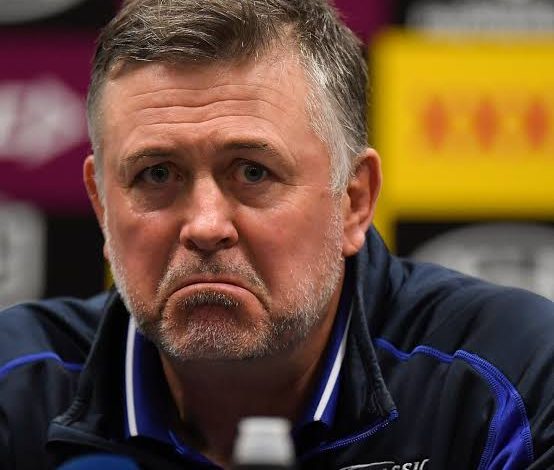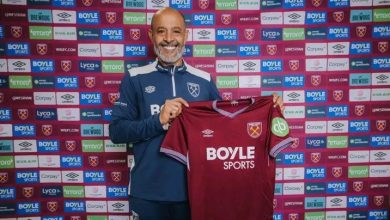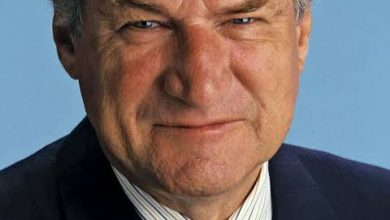Former Canterbury-Bankstown Bulldogs Head Coach’s Candid Reflection on Coaching High-Stakes Matches

In a revelation that has taken the rugby league world by surprise, former Canterbury-Bankstown Bulldogs head coach Cameron Ciraldo recently opened up about his experiences coaching high-pressure, big-game situations. Known for his meticulous strategy and intense leadership, Ciraldo’s honest reflection on coaching in the most critical moments offers a side of the job that many fans and analysts may not fully appreciate. His comments highlight the hidden challenges and sacrifices that come with the territory, as well as the mental toll on a coach during high-stakes matches.
The Reality of High Expectations
Coaching in the National Rugby League (NRL), particularly for a club like the Bulldogs with its storied history and loyal fanbase, comes with enormous expectations. Ciraldo, who led the team from 2022 to 2024, emphasized the weight of those expectations, especially when it came to managing big-game pressure.
“The fans, the media, and the club all have a vision of what they expect from you,” Ciraldo admitted. “That’s the reality of coaching in a club like the Bulldogs. It’s not just about winning; it’s about living up to the legacy of the club. It’s relentless.”
This acknowledgment resonates with many in the world of sport, where coaches often find themselves juggling the desire to implement their tactical ideas with the pressure to deliver instant results. Ciraldo spoke candidly about the internal conflict he often faced between sticking to his game plan and the instinct to push for immediate victories in critical moments.
“The pressure in big games isn’t just from the outside,” Ciraldo shared. “It comes from within, too. You want to get it right, for the team, for the fans, for your own personal growth. But it’s never as simple as just saying ‘we have a plan.’”
The Emotional and Mental Toll
One of the most striking aspects of Ciraldo’s admission was the emotional and mental toll that coaching high-stakes games takes on a coach. Ciraldo, who was well-regarded for his calm demeanor, explained that there was far more to coaching than simply issuing instructions from the sideline.
“The emotional side of coaching in these games is something that people often don’t talk about enough,” Ciraldo confessed. “You feel every loss, every mistake. It’s not just the players who are hurting; the coaching staff feel it too. You can’t afford to show weakness, but inside, you’re carrying that weight.”
This honesty revealed a raw vulnerability that contrasted with his typically composed public image. Ciraldo explained how he often found himself awake late into the night, revisiting every decision he made throughout the game, wondering if he could have done something differently to change the outcome.
“It’s a fine line between being a motivator and being emotionally drained,” he added. “I had to learn that some things are out of your control. It’s a learning curve every season.”
Handling Player Expectations and Personal Sacrifices
Ciraldo’s role was not only about managing the tactics of the team but also about managing the personalities and expectations of the players, many of whom were under immense pressure themselves. The former coach reflected on how he had to develop a deeper emotional intelligence to understand his players and ensure they were mentally prepared for big games.
“It’s not just about telling them what to do on the field,” Ciraldo noted. “It’s about understanding where their heads are at. Players react differently in high-pressure moments. Some thrive, others crumble. A good coach is someone who can recognize those patterns and support their players in the best way possible.”
However, the emotional strain didn’t end with the players. Ciraldo also admitted that his position took a significant toll on his personal life, particularly when the stakes were highest. The relentless travel, the strategic preparations, and the emotional demands of leading a team left him with little room to focus on family and personal time.
“There were days when I felt I wasn’t doing enough for my family. There were birthdays I missed, moments I wish I could’ve been present for, but the job demands everything,” Ciraldo said. “It’s hard. The responsibility doesn’t just end at the final whistle. It lingers.”
Despite the emotional sacrifices, Ciraldo emphasized that the job also comes with unique rewards. He credited much of his growth as a coach to these intense experiences, even if they sometimes came at a personal cost.
Learning from Defeat and Growing as a Coach
Ciraldo’s tenure as head coach included a series of ups and downs, with some heartbreaking losses and moments of promise that ultimately fell short. One of the most surprising aspects of his reflection was his ability to embrace failure as a learning experience rather than something to be feared.
“When you lose in big games, the pain is real. It stays with you. But I’ve learned to look at those losses not as failures, but as lessons. If you can learn from those moments and adjust, it makes you a better coach,” Ciraldo explained.
This mindset of continuous improvement was crucial for Ciraldo’s development as a leader. He took time after each season to reflect on what worked, what didn’t, and how he could evolve both as a strategist and as a mentor to his players.
“Big-game coaching isn’t just about tactics; it’s about understanding your players, understanding yourself, and learning from everything,” he added. “Every experience, whether a win or a loss, gives you something valuable to take forward.”
A Look Toward the Future
Although his time with the Bulldogs has concluded, Ciraldo’s passion for coaching remains strong. He expressed interest in continuing his career in rugby league and hinted at potential opportunities to return to the coaching scene, where he can apply the knowledge gained from his time in the NRL.
“I’m always looking to grow,” Ciraldo stated. “Every chapter in my coaching journey, whether it’s a success or a setback, gives me the tools to be better. I’m ready for the next challenge.”
Conclusion
Cameron Ciraldo’s candid admission about the realities of coaching in big games provides an invaluable perspective into the complexities and emotional demands of a head coach in the NRL. His reflections on handling pressure, balancing strategy with emotional intelligence, and making personal sacrifices shed light on the challenges that many outside the sport may not fully grasp. It’s a reminder that the job is not just about calling the shots from the sidelines—it’s about carrying the weight of expectations, managing high-stress situations, and continually learning from both victories and defeats. As Ciraldo looks ahead to future coaching opportunities, his insights offer a deeper understanding of what it truly takes to
succeed in the world of professional rugby league.





